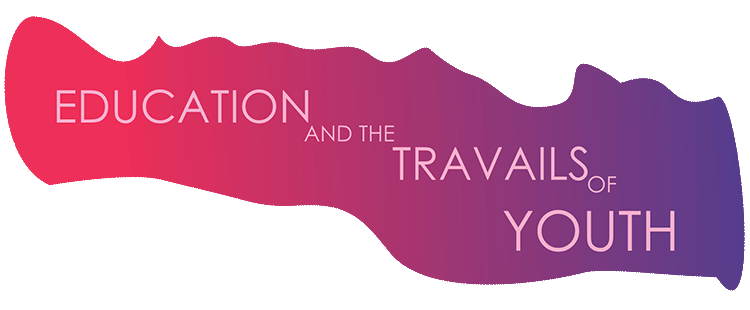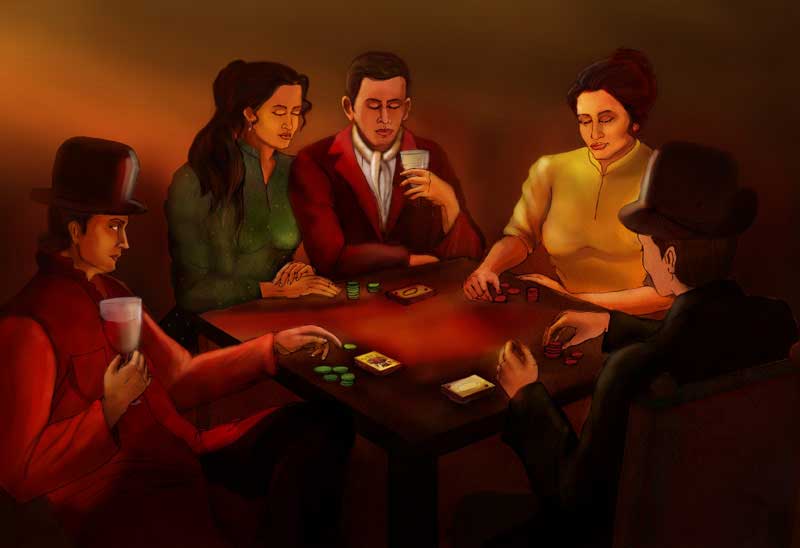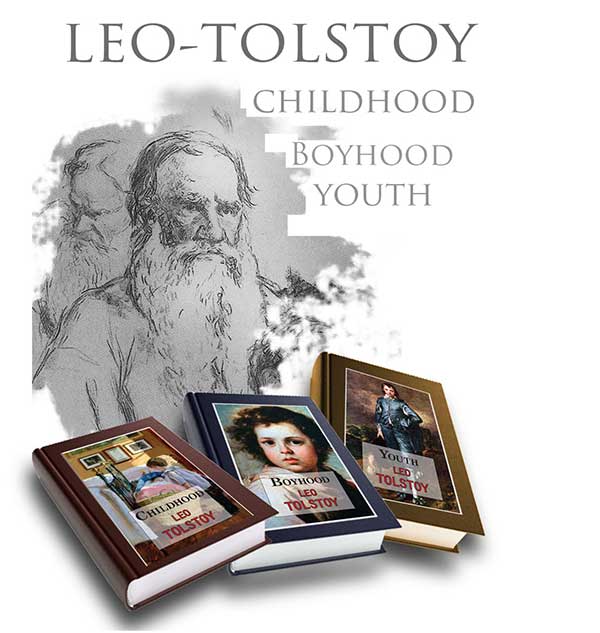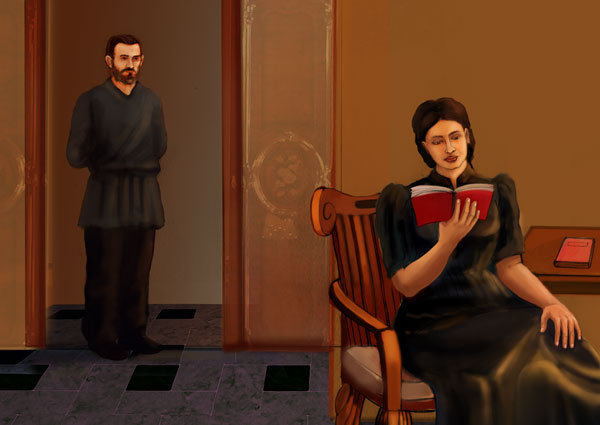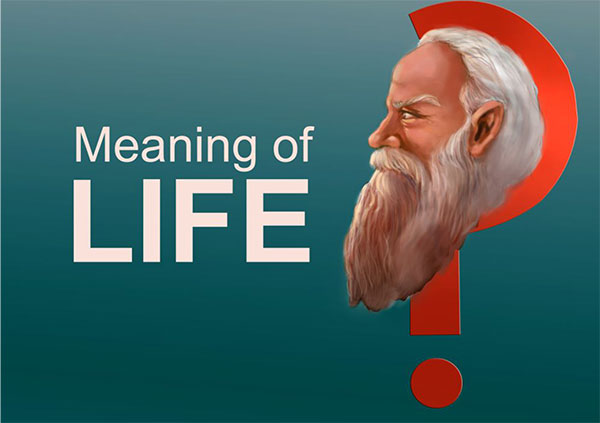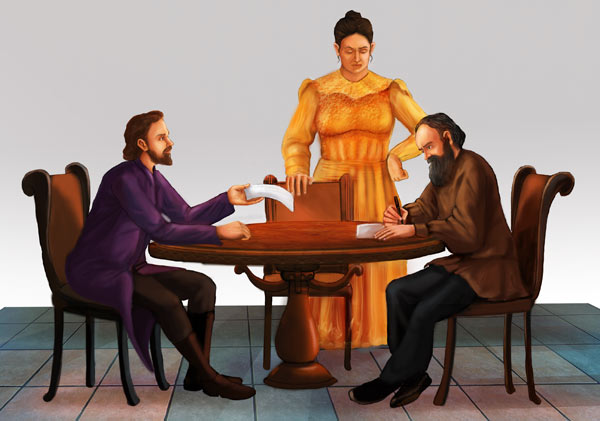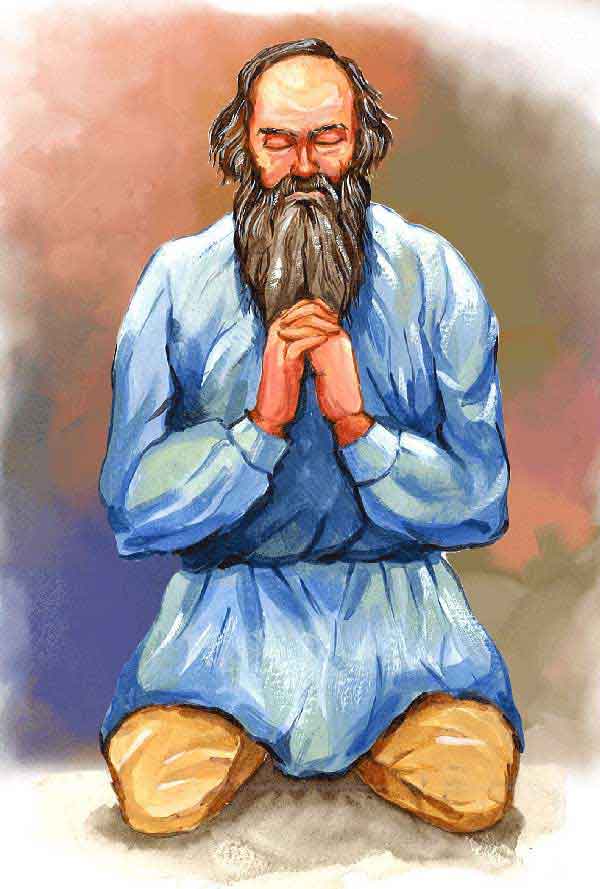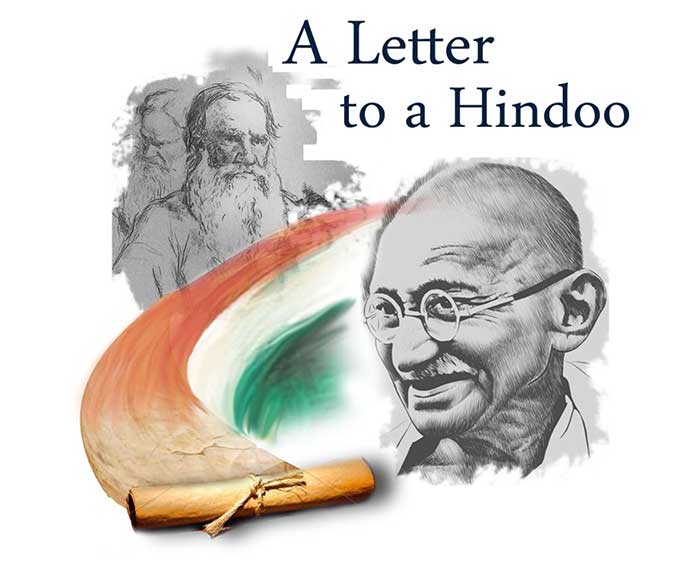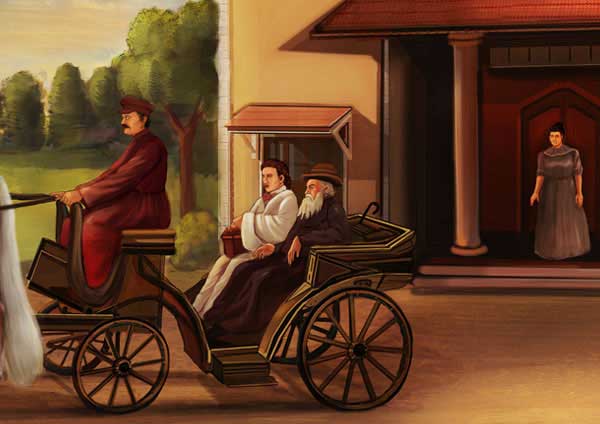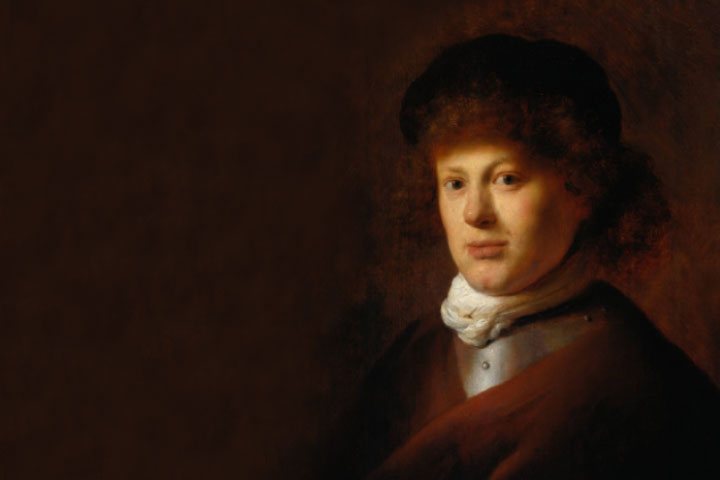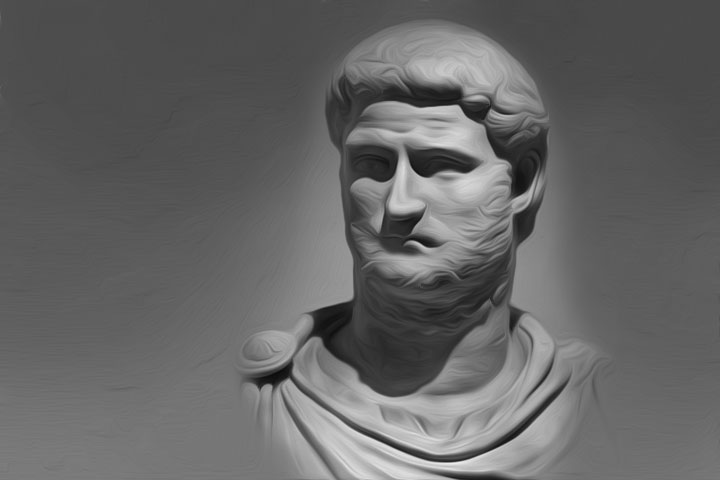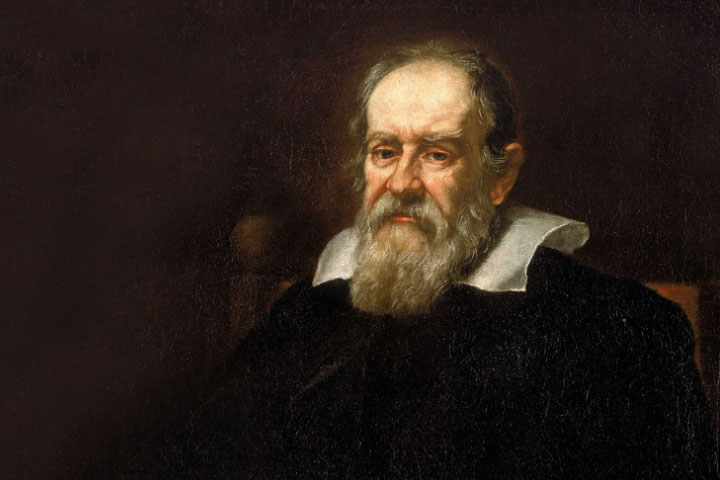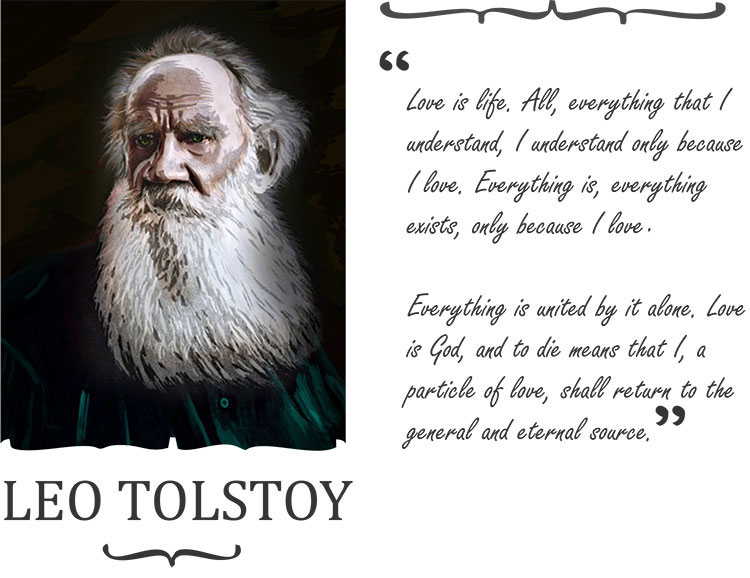
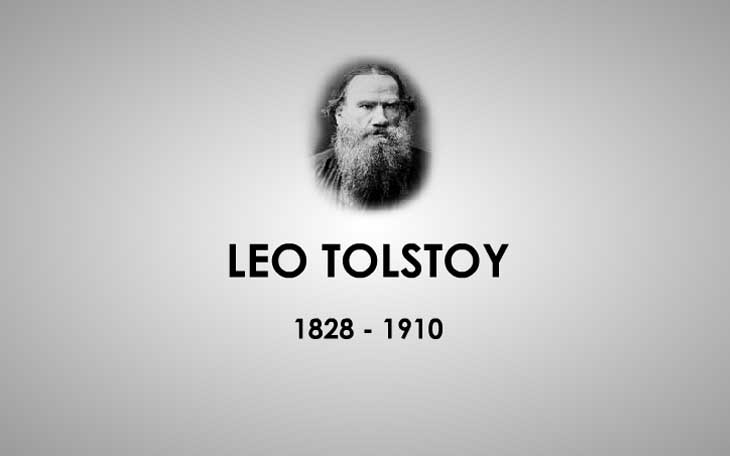
Introduction
“Love is life. All, everything that I understand, I understand only because I love. Everything is, everything exists, only because I love. Everything is united by it alone. Love is God, and to die means that I, a particle of love, shall return to the general and eternal source.”
Love – that extremely beautiful emotion which defies adequate words for expression has been extolled so beautifully by one of the greatest philosophers of all time, Leo Tolstoy. In his words, the true essence of love comes forth in all its glory of Godliness, goodness and unity of source.
Leo Tolstoy was one of the greatest novelists in the history of world literature. He was also a prolific writer, a teacher, a soldier and a political and religious thinker. In his youth, however, Tolstoy had fallen into the depths of debauchery and subsequently, into deep depression. From the spiritual crisis that he underwent thereafter, Leo Tolstoy rose to become one of the greatest philosophers of all time.Leo Tolstoy lived a long life and was also Russia’s most controversial public figure. He primarily wrote novels and short stories, and in his later life, plays and essays. His extreme views on morality and asceticism in the latter period of his life made him a well-known moral thinker and social reformer. The biggest discovery of Leo Tolstoy was the profound truth of faith – “I was inevitably led to acknowledge there does exist another kind of knowledge possessed by humanity as a whole: faith.”
Leo Tolstoy’s ideas on non-violent resistance to evil, expressed in his beautiful work, ‘The Kingdom of God Is Within You’ have had a profound impact on important luminaries of the twentieth century, like Mahatma Gandhi and Martin Luther King Jr. From a person who as per his own ‘Confession’ indulged in all kinds of violence and crime, Tolstoy searched for the eternal meaning to life and became a religious and moral philosopher.
In one of his other famous works ‘War and Peace’, Leo Tolstoy has said:
“In historical events great men – so-called – are but labels serving to give a name to the event, and like labels they have the least possible connection with the event itself. Every action of theirs, that seems to them an act of their own free will, is in an historical sense not free at all, but in bondage to the whole course of previous history, and predestined from all eternity.”
Come, let us take a peek into his interesting life right from his childhood, boyhood and youth to the wisdom of old age.
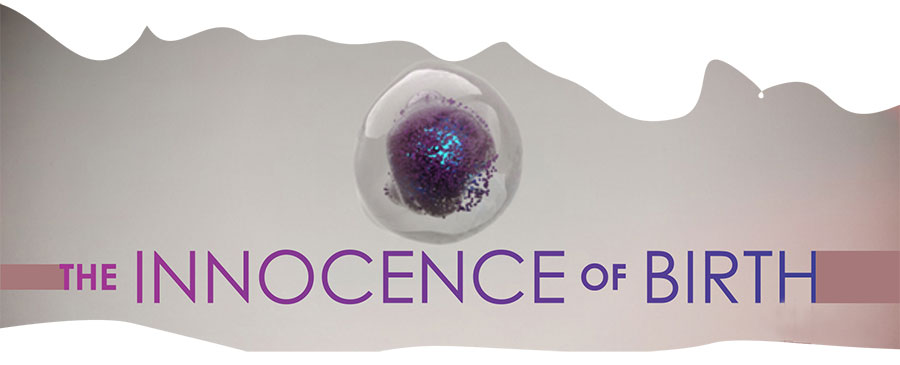
The Innocence of Birth
Tolstoy’s mother was Mariya Nikolayevna (Princess Volkonskaya before marriage) and his father was Count Nikolay Ilyich Tolstoy. Tolstoy’s father was a Lieutenant Colonel who was awarded the order of St. Vladimir for his service. He was a veteran of the Patriotic War of 1812. Count Nikolay Tolstoy got married to Mariya after resigning from the Military Orphanage.
Leo Tolstoy (Lev Nikolayevich Tolstoi) was born on 28 August, 1828 (New Style – September 9, 1828 ) at his family’s ancestral estate called Yasnaya Polyana (meaning Clear Glade), in Tula Province, South of Moscow, to an aristocratic Russian family. Tolstoy was the fourth of his parents’ five children and lived a life of privilege and wealth.
“Oh the happy, happy, never-to-be-recalled days of childhood! How could one fail to love and cherish memories of such a time? Those memories refresh and elevate the soul and are a source of my best enjoyment.”
- Leo Tolstoy in ‘Childhood’.
Leo Tolstoy had a far from idyllic life. He was,, what is called ‘a child of gold’ – a term which refers to children who remain happy souls and adjust well to life despite facing adversity. Tolstoy was not even two years old when his mother passed away whilst giving birth to his sister Mariya in 1830. At that time, the children were taken care of by their father’s distant cousin, Tatyana Aleksandrovna Yergolskaya. ‘Aunt Tatyana’ as she was called, helped to look after the children and the household.
Leo Tolstoy’s father was a gentleman with a brisk, merry tone of voice. He used to joke a lot and did not mete out corporal punishment to the farmhands who worked on their estate. He liked to ride in the forests and fields and have walks with his children. According to Leo, his mother and brother Nikolay were humble, modest and did not judge or condemn others – qualities that he liked most about them. Besides Nikolay, Leo Tolstoy’s other older siblings were Sergey and Dmitriy. Dmitriy was closest to Tolstoy in age and they played boyhood games together.
The family home of the Tolstoy’s was a bustling one with visiting family members. They played indoor games such as Patience, piano, sang Gypsy and Russian folk songs, put on plays etc. Stories and poetry would be read aloud. There were plenty of outdoor activities too like horse riding, tobogganing in winter, playing in the orchards, gardens and bathing in the large pond, which was Leo’s favourite.
However, in 1836, when Leo Tolstoy was eight years old, the Tolstoys left the country life and moved to Moscow. This was to make the children attend school there. But they returned each summer to Yasnaya Polyana. In the summer of 1837, Leo Tolstoy’s father, Count Nikolay Tolstoy, died suddenly on the street, and was buried at Tula. Leo was nine years old then. This was his first experience of the death of a loved one and he watched his grandmother, Pelageya suffer her agony. She took care of him after he was rendered an orphan. Unfortunately, she too passed away after eleven months. The seeds for the later great spiritual quest were thus sown during Leo’s childhood days.
After grandmother Pelageya’s demise, Leo’s father’s sister, Countess Aleksandra Osten Saken ‘Aunt Aline’, was appointed as the children’s legal guardian. Nikolay and Sergey were in Moscow with her, and Leo, Dmitriy and Mariya went back to live with Aunt Tatyana, in Yasnaya Polyana. For the young Leo Tolstoy, Aunt Tatyana‘s religious dedication influenced him immensely.

Leo used to call her ‘Aunt Toinette’. He shared a very loving bond with her and his childhood and early manhood were influenced by her loving care.
Aunt Aline passed away in 1841. Now at the age of thirteen, Leo and his brothers went to live in Kazan with their next guardians, Aunt and Uncle Yushkof. Thus, there were constant upheavals in Leo Tolstoy’s life due to deaths in the family. Yet, he idealized his childhood memories in his writing.
“It seems to me that the human mind in each separate individual follows in its evolution the same lines along which it has developed during whole generations; that the ideas which serve as basis for different philosophical theories are inalienable attributes of the mind; but that each man must be more or less conscious of them before he can know of the existence of the philosophical theories.”
– Leo Tolstoy in ‘Boyhood’.
Education and the Travails of Youth
Leo Tolstoy was educated at home by his French and German tutors. He dates the beginning of his youth at the age of sixteen. Leo was good at games, though not too good at studies. In the year 1844, when he was sixteen, he began studying at the University of Kazan. He started his university life in an Oriental Languages Course, since he planned on a diplomatic career. There, he studied many languages besides History, Geography and religion. As a student, he found these studies very demanding and failed to do well in this course. Due to his low grades, he transferred to an easier course in Law two years later. It was also in this period that Leo Tolstoy and his brothers left their uncle’s home and started living in their own rooms. While studying in the law field, he wrote a comparison of the French political philosopher Charles de Secondat de Montesquieu’s ‘The Spirit of Laws’ and Catherine II the Great’s ‘nakaz’- instructions for a law code. Literature and ethics interested Leo. He also became interested in the literary works of Russian, English and French authors like Charles Dickens, Jean Jacques Rousseau, Laurence Sterne, Friedrich Schiller and some others. He wore a medallion with Rousseau’s portrait in it around his neck, in place of a cross.
In his student days at university, Leo used to party in excess – attending balls and galas, and pursued unhealthy habits of drinking, gambling and visiting brothels. He was described by his teachers as “both unable and unwilling to learn.” At the age of eighteen years itself, Leo had started to be skeptical about all that he learnt as a Christian Orthodox, and had even stopped making the signs of the cross and genuflection he made in prayers. Also, the educational program at the university did not impress him. So, after three years, in 1847, he left the university without a degree. Leo was nineteen years then. In 1848, he went to St. Petersburg and got a law degree after passing two tests. At this time, he was asked to return to Yasnaya Polyana to look after his inheritance of 4000 acres of land and 350 serfs. He returned to the family estate and educated himself independently here. He was a polyglot and had a working knowledge of a dozen languages.
At Yasnaya Polyana, Leo attempted to look after the affairs of the estate. He tried to become a good farmer and even acted as a teacher in a school which he had built for his serfs. But his frequent social visits to Moscow, Tula and St. Petersburg with the continuation of his loose ways did not leave him with much time to lead the serfs or farmhands in their work, and Leo failed to be a good farmer. Leo even went to a Medical School in Moscow, but his addiction to gambling made him lose a huge fortune. He had to sell his possessions and even parts of his estate to pay off the huge debts which he had raised. Drinking and associations with characters of ill-repute were a part of his life. Subsequently, he was pulled out of medical school by his brother.

Leo’s Personal Lab – Dear Diary

It was during this time that Leo began the habit of keeping a diary and writing his thoughts and the day’s happenings daily and with complete honesty. It became a sort of laboratory for his experiments and he made his own self-analysis, observations, evaluations and conclusions. He wrote about his confusion regarding the goal of his life. His diary served as a dashing board for venting out all his suppressed expressions. Much material for his later work on fiction stemmed from these diary entries. Because of his diary jottings, Leo is one of the most copiously documented writers who ever lived.
Leo Tolstoy would write some of his most touching letters to Aunt Tatyana. In his sober moments, a remorseful Leo confessed and also wrote in his diary – “I am living a completely brutish life… I have abandoned almost all my occupations and have greatly fallen in spirit.”
Leo loved making rules for social and moral behaviour which he recorded in his early diaries. It was another thing that he broke the rules that he himself made. Leo would formulate new ones and castigate himself for not following them. Due to his constant failure to follow rules, Leo believed that ‘life is too complex and disordered ever to conform to rules or philosophical systems’.
Leo’s youth was a period in which he gave in to his animal nature – his lower impulses which drove him into abysmal pits of misdeeds.
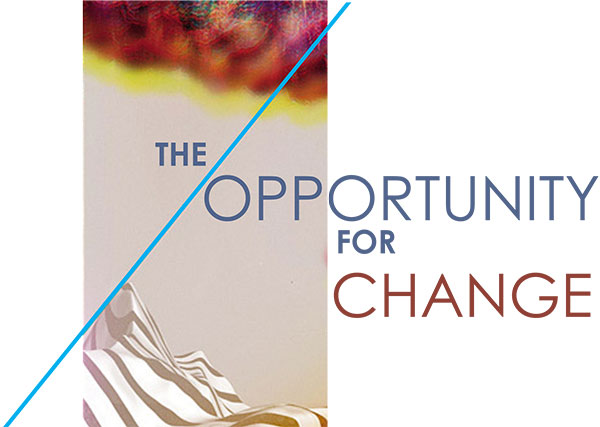
The Opportunity For Change
Nikolay, Leo’s older brother who had come visiting Yasnaya Polyana on military service leave in 1848, convinced Leo Tolstoy to join as a Junker, or gentleman volunteer in the army, south in the Caucasus Mountains. Nikolay, an army officer, was also stationed there. Leo readily agreed and in the spring of 1851, when he was 23 years old, he joined the army as a Junker, just as Nikolay wished him to. Besides the occasional fighting in the army, Leo loved to go hunting and his habits included drinking, sleeping and chasing women. He took part in campaigns against the native Caucasian tribes and later in the Crimean War. Leo had mercury treatment for ‘venereal sickness’ and was convalescing in Tiflis, a fact he recorded in his diary and which reflected the life he was leading at that time.
While working as a Junker, Leo wrote his first semi-autobiographical and fictional sketch called ‘Detstvo’ (Childhood) in 1852. His fondest childhood memories were displayed in it. The first part of Childhood was sent to ‘Sovremennik’ (The Contemporary), a leading Petersburg monthly. It appeared in the September 1852 issue, with the initials L.N. below. The editor of ‘The Contemporary’, Nikolai Nekrasov, was ecstatic about the piece. It was a success and created a sensation in all of Russia. To quote a reviewer:
“If this is the first production of L.N., Russian literature must be congratulated on the appearance of a new and remarkable talent.”
‘The Contemporary’ was the most popular journal in those times. ‘Childhood’ was well accepted and became Leo’s very first published work and first attempt at fiction. ‘Childhood’ was reality fiction – part autobiographical and part fiction. There is delightful conflict in Leo’s thoughts – when as a sixteen-year old he scourges his bare back in his box-room to harden himself to physical pain. Another time, when he suddenly remembers that death could come at any moment for us mortals, he casts his books aside and enjoys eating honey-cakes bought with the last of his pocket-money, lying down on his bed for three days, curled up with a novel.
Based on his experiences in the Caucasus Mountains, Leo also published ‘Nabeg’ (‘The Raid’) in 1853. Then in November 1854, at the age of 26, Leo was transferred on his own request to Sevastopol in southern Ukraine. Sevastopol was like a battered fortress, and here, through 1854 to 1855, Leo fought in the Crimean War, when Russia battled England and France over land. Leo was put in charge of the hottest conflict area, the Fourth Bastion. He served as an artillery commander in the battle and was honoured for his courage. Leo continued his writing during the lulls of the war. It was during this time in 1854 that the sequel to ‘Childhood’, named ‘Otrochestvo’ (Boyhood) was composed. ‘Boyhood’ was the second book in Leo’s trilogy of autobiographical books. Leo had by then started mixing with poets and writers and also took on the role of teaching people.
Leo also wrote the three Sevastopol Sketches – ‘Sevastopol v dekabre mesyatse’ (Sevastopol in December), ‘Sevastopol v maye’ (Sevastopol in May) and ‘Sevastopol v avguste 1855 goda’ (Sevastopol in August), all of which were published during the year 1855-56. The Sevastopol Sketches expressed his viewpoints on the contradictions of war. Leo’s vision of war as a special space where men were at their best and worst, and as a place of heroism as well as unparalleled confusion, established his reputation. The first Sevastopol Sketch dealt with the courage of simple soldiers and was written in the second person like a tour guide. It also portrayed Leo’s concern with the morality of observing other people’s suffering. The second ‘Sevastopol Sketch’ book was an experiment for Leo, for he tried to present a major part of the story in the form of a soldier’s stream of consciousness, just before he is killed by a bomb. Leo, in the famous ending of the second ‘Sevastopol Sketches’ asserts that, “the hero of my story – whom I love with all the power of my soul ……who was, is, and ever will be beautiful – is the truth.” Leo had this ability to make language aesthetically effective in his fiction. ‘The Sevastopol Sketches’ was published in the ‘Contemporary’ magazine in three installments. It garnered wide attention for Leo and even Tsar Aleksandr II complemented it.
Later, when the Crimean War ended, Leo left the army and returned to Russia in 1855. His brother Dmitriy had fallen sick. Leo was at his bedside when he succumbed to tuberculosis. Due to his literary accomplishments, Leo was in high demand on the St. Petersburg literary scene. But he cherished his independence and did not want to restrict himself to any particular school of thought, however intellectual. He was stubborn and arrogant, and declared himself an anarchist. The radical intelligentsia disliked him. In the year 1857, he went off to Paris and wasted all his money on gambling. He then returned to his home country Russia and to his family estate, Yasnaya Polyana.
‘Yunost’ (‘Youth’), the third part of Leo’s autobiographical trilogy was published in 1857. Several stories centre around Dmitry Nekhlyudov, a semi-autobiographical character. He was also the hero of one of Leo’s later novel, ‘Resurrection’. Leo’s autobiographical work ‘Childhood, Boyhood and Youth’ is a sentimental account and relevant to the universal story of growing up.
“It seemed to me that Nature in her mysterious grandeur drawing to herself the shining sphere of the moon, which for some reason hangs in some high uncertain spot in the pale-blue sky and yet was everywhere and seemed to fill the infinity of space, and I, an insignificant worm already defiled by all the mean paltry earthly passions but endowed also with a mighty power of imagination and love – it seemed to me at such moments as though Nature, the moon and I were all one and the same.”
– Leo Tolstoy in ‘Youth’
Well-known critic and translator of William Shakespeare, Druzhinin, wrote to Leo Tolstoy thus, after the publication of his work:
“You have an inclination to super-refinement of analysis. Each of your defects has its share of strength and beauty, and almost every one of your qualities bears with it the seed of a defect. ..All the pages you have written with love are admirable – but as soon as you grow cold your words get entangled and diabolical forms of speech appear.”
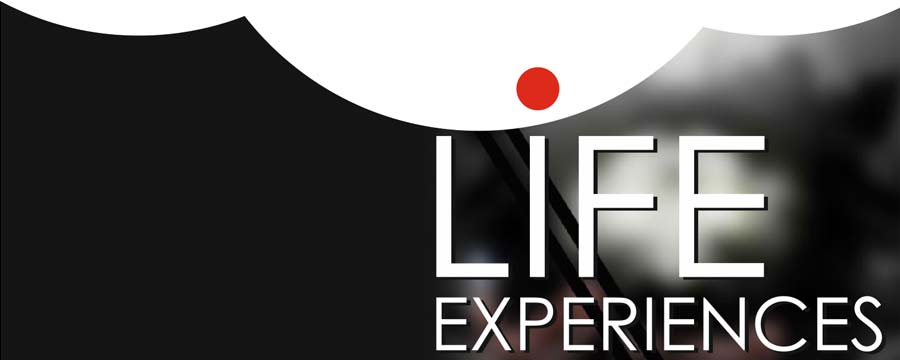
Life Experiences
Leo was torn between his emotions and his future plans. He travelled throughout Western Europe, enjoying his life as a bachelor Count. In a game of billiards with publisher Katkov, Leo incurred a debt of 1000 rubles. He paid it off by relinquishing his unfinished manuscript of ‘The Cossacks’. The famous magazine ‘The Russian Messenger’ published ‘The Cossacks’ as it is in one of its later issues.
Leo fell into the depths of debauchery and in his sober moments, poured his heart out on paper:
“I put men to death in war, I fought duels to slay others. I lost at cards, wasted the substance wrung from the sweat of peasants, punished the latter cruelly, rioted with loose women, and deceived men. Lying, robbery, adultery of all kinds, drunkenness, violence, and murder, all were committed by me, not one crime omitted, and yet I was not the less considered by my equals to be a comparatively moral man. Such was my life for ten years.”
At such dark times, Leo prayed to the figure of his mother for succor, as to him, she represented all the good to which he aspired for.

“Such was the figure of my mother in my imagination. She appeared to me a creature so elevated, pure, and spiritual that often in the middle period of my life, during my struggle with overwhelming temptations, I prayed to her soul, begging her to aid me, and this prayer always helped me much.”
As is with any fervent prayer, perhaps it was his call to her in such times, that things changed from his morbid state to a state of settlement.
Leo’s other works like ‘Lyutsern’ (Lucerne) and ‘Tri smerti’ (Three Deaths) followed in the late 1850s. In ‘Lucerne’, an incident is first related in a diary form, its timeless meaning is then deciphered, and finally reflection is made on the deciphered truth. ‘Three Deaths’ described the many ways in which death is perceived when it visits. A noblewoman cannot get accustomed to the fact that she is nearing death; a peasant accepts death simply and with calm, and a tree has its utterly natural death which is a huge contrast with human artifice. All the three events were united by the author’s transcendent consciousness. Leo’s experience in the army also turned him into inward questioning and philosophy. Leo recorded two events of his life in ‘A Confession’ which deeply traumatized him: One was, when on a visit in 1857 to Paris, he witnessed young men being executed in public. In Leo’s words, “the sight of an execution revealed to me the precariousness of my superstition in progress…I realized that even if every single person since the day of creation had, according to whatever theory, found this (execution) necessary I knew that it was unnecessary and wrong, and therefore judgments on what is good and necessary must not be based on what other people say and do, or on progress, but on the instincts of my own soul.”
In a letter to his friend Vasily Botkin, Leo wrote, “The truth is that the State is a conspiracy designed not only to exploit, but above all to corrupt its citizens…Henceforth, I shall never serve any government anywhere.”
On 20th September, 1860, Leo Tolstoy’s brother Nikolay succumbed to tuberculosis. His brother’s death was the second event that had a deep impact on him, as Leo felt that his brother died “without having understood why he had lived, and still less why he was dying.” Leo realized that “everything is evolving, and the reason why I am evolving together with all the rest will one day be known to me.”
During 1860-61, Leo made two trips to Europe. At that time, he met Victor Hugo, the author of ‘Les Miserables’, which Leo read and liked immensely. Leo’s literary transformation and influence is seen through a comparison of Hugo’s novel and Leo’s ‘War and Peace’. A visit to the French anarchist Pierre-Joseph Proudhan in March 1861 influenced Leo’s political philosophy. Proudhan was then living in exile in Brussels under an assumed name. Leo reviewed Proudhan’s forthcoming publication, ‘La Guerre et la Paix’ (War and Peace) and also borrowed this title for his later masterpiece. He and Proudhan also discussed issues related to education.
Leo returned to Yasnaya Polyana with a lot of enthusiasm and established thirteen schools based on the principles outlined in his 1862 essay, “The School at Yasnaya Polyana” for his serfs’ children,. His search for his real vocation made him decide on pedagogy. He wished to study educational methods to use in his school for peasant children. So, he decided to study pedagogical theory and practice and toured Western Europe. He published twelve issues of ‘Yasnaya Polyana’, a journal in 1862-63. He wrote articles which were provocative like ‘Progress I opredeleniye obrazovaniya’ (progress and the Definition of Education), which denied any underlying laws in history, and ‘Komu u kogu uchitsya pisat, krestyanskim rebyatam u nas ili nam u krestyanskikh rebyat?’ (Who Should Learn Writing of Whom: Peasant Children of Us, or We of Peasant Children?). However, due to harassment by the Tsarist secret police, Leo’s educational programs were unsuccessful.
Even at that time, Leo had started feeling spiritually sick even though he was very involved in his work of writing and teaching. Putting up a new goal of “achieving the best for my family and myself”, he decided to get married.

Golden years – The Ecstasy of Marriage
“What counts in making a happy marriage is not so much how compatible you are, but how you deal with incompatibility.”
In September 1862, at the age of 34, Leo Tolstoy married Sofya Andreyevna Behrs, the sister of one of his friends. Sofya was the daughter of a prominent Moscow physician and Leo had been in love with her since quite some time. She was sixteen years younger to him and was beautiful, intelligent and the later years proved her strength of will power. Sofya was called Sonya, the Russian diminutive of Sofya.
Before marriage, Leo gave Sonya his diaries to read so that she could know and understand everything about him.
Leo’s emotional insensitivity is evident since the diary contained everything about him, even the details of all his sexual escapades including the fact of a son having been borne of a serf on his estate. Sonya, though she felt devastated, was very forgiving. Leo’s married life of the first fifteen years brought him great happiness. At the start of his married life, Leo’s creativity was at its peak and personally too he was on a peak, in a very beautiful space. Sonya assisted a lot in his writing career, taking on the multiple roles of being a proof-reader, manager and secretary. She also helped in managing the affairs of his vast estate, apart from his educational projects. They had thirteen children in all, three of whom did not survive infancy, and another two died in childhood. Leo took care of his peasants and continued with his writing. Sonya was a beautiful inspiration for him and his writing. His two great novels ‘War and Peace’ and ‘Anna Karenina’ were composed during this period in his life. However, the shock of the diary’s contents was to disturb their later married life to a great extent with much tension and jealousy.
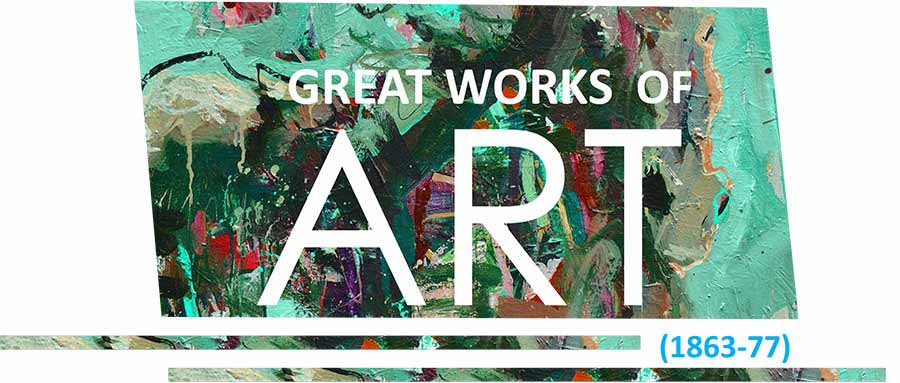
Great Works of Art (1863-77
“Man in connection with the general life of humanity appears subject to laws which determine that life. But the same man apart from that connection appears to be free. How should the past life of nations and of humanity be regarded – as the result of the free, or as the result of the constrained activity of man? That is a question of history.”
– War and Peace (Epilogue 2, Ch. VIII)
‘Kholstomer: The Story of a Horse’ was written in 1863. The protagonist and principal narrator was an old horse. Leo also completed his work on ‘Kazaki’ (The Cossacks) and it followed in the same year. Through the story of a Russian aristocrat in love with a Cossack girl, it described the life of the Cossack people.
‘Voyna i mir’ (War and Peace) was an epic novel, written in the 1860s by Leo Tolstoy, whilst residing at Yasnaya Polyana with his wife and children. Initially, in 1865, ‘The Russian Messenger’ first published a portion of the novel under the title ‘The Year 1805’. Leo released three more chapters in the year 1868. The novel was complete a year later in 1869. It received fantastic reactions from the public as well as the critics and has been called the greatest novel ever written.
‘War and Peace’ gave a detailed depiction of the archetypes and anti-heroes of early 19th century Tsarist Russia under the leadership of Alexander I. ‘War and Peace’ was set in the Russian social life during the Napoleonic wars and showed the absurdity and shallowness of war. The novel dealt with the histories of five aristocratic societies and had 559 characters. Leo depicted all his family relations from both sides and the people he had ever met, in his characters. Both, the critics and the public, praised his thoughtful development of fictional characters realistically set against the backdrop of war. The book described in amazing detail and psychological rendering, of the balls and the battles, of birth as well as death and the social structure. Three long essays were also incorporated into the novel by Leo, satirizing the laws of history. In ‘War and Peace’, Leo extolled the idea that “the quality and meaning of one’s life is mainly derived from his day-to-day activities.”
‘War and Peace’ contained three kinds of reading material. Besides having a historical account of the Napoleonic wars and the biographies of the fictional characters, it also had a set of essays about the philosophy of history.
Russian author Ivan S. Turgenev and French author Gustave Flaubert initially thought that the novel was without form and could not be very successful, but time proved them wrong. ‘War and Peace’ was a huge success. However, Leo’s enthusiasm had started waning and he was listless and depressed. He travelled to Samara province in the Steppes where he built an estate for summer stay to lift his spirits.
“It would be difficult to explain why and whither ants whose heap has been destroyed are hurrying : some from the heap dragging bits of rubbish, larvae, and corpses, others back to the heap, or why they jostle, overtake one another, and fight, and it would be equally difficult to explain what caused the Russians after the departure of the French to throng the place that had formerly been Moscow.
But when we watch the ants round their ruined heap, the tenacity, energy, and immense number of the delving insects prove that despite the destruction of the heap, something indestructible, which though intangible is the real strength of the colony, still exists; and similarly, though in Moscow in the month of October there was no government no churches, shrines, riches or houses, it was still the Moscow it had been in August. All was destroyed, except something intangible yet powerful and indestructible.”
– Leo Tolstoy in ‘War and Peace’.
After writing ‘War and Peace’, Leo had a brief interlude during which he considered writing a novel about Peter I the Great. He also brought out pedagogies (reading primers). Later, Leo started writing ‘Anna Karenina’, another of his best known novels, from 1873 onwards. One of the most famous lines in the book is right at the beginning which also represented Leo’s emotional state in life:
“All happy families resemble one another, each unhappy family is unhappy in its own way.”
Just as in ‘War and Peace’, some of the events in ‘Anna Karenina’ too were biographical, especially the romance between Kitty and Levin, whose characters resembled the relationship that Leo had with his wife during their courtship days.
‘Anna Karenina’ revolved around the themes of marriage and social life. The stories of three families – the Karenins, the Levins and the Oblonskys were interwoven in the novel. The novel related the story of a nobleman’s rejected mistress who throws herself under a train, and of a philosophical landowner who seeks to reform the lives of the peasants working in the fields. The concluding section of the novel had a partial base on the current events in Russia while it was at war with Turkey. From 1873 to 1877, ‘Anna Karenina’ was published in installments. Its first chapters appeared in the ‘Russian Herald’. The novel received widespread critical and public acclaim, and earned much royalty for Leo. Leo successfully portrayed the striking elements of the society he lived in and the social conditions prevalent at that time, through these two popular pieces of art. These two novels have been described as amazing pieces of art having extremely minute details and are among the greatest novels in English fiction. Leo himself regarded ‘War and Peace’ as an epic in prose and ‘Anna Karenina’ as his first true novel.
Leo’s family kept growing and the royalty that he earned from the sale of both his novels made him extremely rich. All of Leo’s works depicted the philosophy that he formed of life, after having been a witness to the conventions of the society he lived in.

The Philosophy of Age – Spiritual Change
Though the novel ‘Anna Karenina’ became a huge success, Leo suffered a spiritual crisis after its completion. Depressed and shaken, he even contemplated suicide. He tried to understand and uncover the meaning of life. The tormenting quest for the eternal meaning of life which had begun for him as a child was now seeking and searching answers.
Leo wanted to give up everything to seek the ultimate answer. He had not even reached fifty at that time and was healthy, wealthy and famous.
Leo’s spiritual introspection kept growing. He became extremely self-doubtful and self-critical – he examined his “egotistical family cares…..concern for the increase of wealth, the attainment of literary success, and the enjoyment of every kind of pleasure.”
In 1877, the Russian Orthodox Church that Leo first went to, could not provide him with the answers that he sought. He formulated his own beliefs in lieu of organized religion and also started to believe that the Christian churches were corrupt. Leo became an extreme rationalist and got highly influenced by the German philosopher Schopenhauer’s famous book ‘The World as Will and Representation’, and the spiritual path of ascetic morality prescribed for the upper classes therein. The ethical teachings of Jesus, centering on the ‘Sermon on the Mount’, and especially the injunction ‘to turn the other cheek’, shaped Leo’s Christian beliefs. This, according to Leo, justified pacifism, non-violence and non-resistance. The passages that Leo most relied on from the Bible have been published as ‘Leo’s Bible’.
Leo converted from a privileged society author to a spiritual anarchist who espoused non-violence in his latter days. This gave rise to his book ‘A Confession’, which he started writing in 1879. This novel marked an outward change in his life and works. The turmoil and change he underwent in his thinking poured out in his writing. The mid-life existential crisis of melancholia that Leo faced and his search for a profound answer to the question: “What is the meaning of life?” formed the basis of the story. According to Leo, the novel began “the last period of my awakening to the truth which has given me the highest well-being, in life and joyous peace in view of approaching death.”
In ‘A Confession’, Leo created his own version of Christianity and blended it with socialism. It won him many followers and his mass appeal gave rise to ‘Leoism’. It created Leoan communities across America and Europe. Leo helped the Russian non-Orthodox Christians (Dukhobors) in migrating to USA and Canada.
After ‘A Confession’, he also wrote a number of non-fiction articles and novels expressing his ideology and criticizing the government and Church.
In 1883, Leo met V. G. Chertkov, a wealthy guard officer. With his support, Leo founded a new publication called ‘The Mediator’ to give expression to his own beliefs in tract and fiction. Through ‘The Mediator’, he started espousing his unconventional spiritual beliefs. Theories such as rejection of the state and Church, indictment of the demands of the flesh, and denunciation of private property were some of his beliefs expressed in a series of pamphlets. Due to this initiative, good reading was available to the poor and nearly twenty million copies got distributed in six years. Leo’s beliefs however, created a lot of controversy and the secret police also started keeping an eye on him.
In the later years of his life, Leo Tolstoy, with his moral and religious philosophy had become more of a saint in the minds of the people of the world. But to his wife, he was increasingly becoming more of a devil. The strain in his family relations was increasingly becoming evident and their troubled marriage made good fodder for the press. Leo’s spiritual beliefs and philosophical outlook made him want to give away his wealth, whether inherited or earned, but his wife was adamant that he should not do so. He even wished to renounce the copyrights on his works, but his wife objected to his decision. With his increasingly radical beliefs, their relationship worsened further and frequent quarrels and disagreements were the norm. In 1884, they reached an unhappy compromise according to which, Leo Tolstoy conceded to granting of the copyright and royalties of all his works done before 1881 to his wife.
British novelist and critic A. N. Wilson described the latter life of the Russian literary giant as one of the unhappiest in literary history.
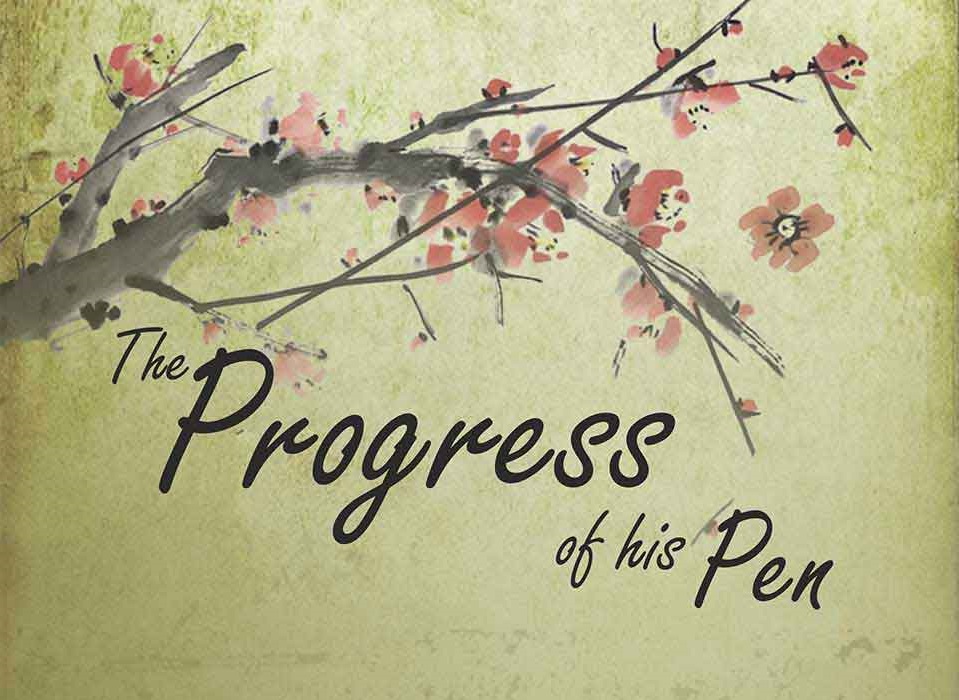
The Progress of His Pen
Throughout the period of the 1880s and 1890s, Leo continued his fiction writing along with the writing of his religious tracts. Moral tales and realistic fiction were among his later works. In 1886, he wrote the novella ‘The Death of Ivan Ilyich’, where the main character, Ivan Ilyich, struggles to come to grips with his impending death. He realizes albeit very late that he has wasted his life on fruitless pursuits and trivialities and now that his end looms large, he repents the time that he has wasted. ‘The Death of Ivan Ilyich’ was one of Leo’s most successful later works. Both ‘The Death of Ivan Ilyich’ and another novel ‘What is to be done?’ developed a radical anarcho-pacifist Christian philosophy. A satirical play called ‘The Living Corpse’ was written in 1890. Titled after Luke’s Gospel in the New Testament, Leo wrote ‘The Kingdom of God Is Within You’ in 1893. Later on, in the year 1898, Leo wrote his fictional work, ‘Otets Sergy’ (Father Sergius). In this work, he wrote about the beliefs following his spiritual conversion and seemed to be critical of them. In 1889, Leo wrote ‘Kreytserova sonata’ (The Kreutzer Sonata), a story about a man who murders his wife. Leo proposed total abstinence from sex as an ideal. In the same year he also wrote his third novel, ‘Voskreseniye’ (Resurrection). In this novel, the hero, Dmitry Nekhlyudov, realizes towards the end through a spiritual awakening, the futility of judging others, a Leoan truth. This novel garnered some praise, though not to the extent of acclaim and success that his previous novels ‘War and Peace’ and ‘Anna Karenina’ had got. Leo’s later works include essays on art, plays and short stories. He also involved himself in many causes like appealing to the Tsar to avoid civil war somehow and providing moral and financial support to the Doukhobors.
In 1901, Leo published ‘Resurrection’. His philosophical teachings earned him numerous followers in Russia as well as from abroad. But the Russian Holy Synod (Orthodox Church leaders) was displeased with his religious teaching and excommunicated him in 1901 because of it. His public popularity however did not diminish. Leo was chosen for the first Nobel Prize in Literature in the year 1901. However, one of the judges criticized his “narrow-minded hostility to all forms of civilization”, and the award was given by the conservative panel of judges to Armand Sully-Prudhomme, a French poet, whose works did not stand the test of time. Leo went back to Yasnaya Polyana in the year 1902.


Leo’s Opinion of Shakespeare
According to Leo, William Shakespeare was a bad dramatist and the unquestionable glory he enjoyed of being a great genius was a big evil, as is every untruth. In a critical essay on Shakespeare written in the year 1903, Leo explained his views thus:
“I remember the astonishment I felt when I first read Shakespeare. I expected to receive a powerful aesthetic pleasure, but having read, one after the other, works regarded as his best : “King Lear”, “Romeo and Juliet”, “Hamlet” and “Macbeth”, not only did I feel no delight, but I felt an irresistible repulsion and tedium, and doubted as to whether I was senseless in feeling works regarded as the summit of perfection by the whole of the civilized world to be trivial and positively bad, or whether the significance which this civilized world attributes to the works of Shakespeare was itself senseless…”
He went further, saying : “….I have, as an old man of seventy-five, again read the whole of Shakespeare, including the historical plays, the “Henrys”, “Troilus and Cressida”, the “Tempest”, “Cymbeline”, and I have felt, with even greater force, the same feelings – this time, however, not of bewilderment, but of firm, indubitable conviction that the unquestionable glory of a great genius which Shakespeare enjoys, and which compels writers of our time to imitate him and readers and spectators to discover in him non-existent merits, – thereby distorting their aesthetic and ethical understanding – is a great evil, as is every untruth.”
Since his opinions would be contradictory to the popular perception of Shakespeare, Leo endeavored to support it by a detailed analysis of ‘King Lear’. Literary critic George Orwell wrote a well-known response to this called ‘Lear, Leo and the Fool’.
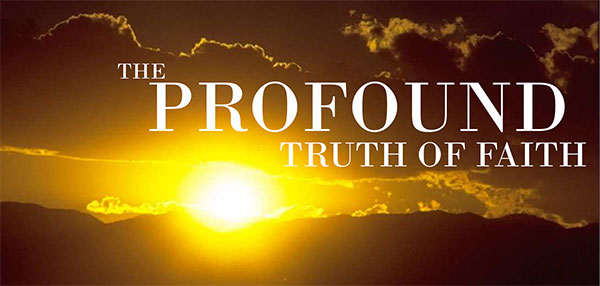
The Profound Truth of Faith
Leo’s spiritual quest continued as he wrote in his diary in January 1903:
“I am now suffering the torments of hell: I am calling to mind all the infamies of my former life – reminiscences do not pass away and they poison my existence. Generally people regret that the individuality does not retain memory after death. What a happiness that it does not! What an anguish it would be if I remembered in this life all the evil, all that is painful to the conscience, committed by me in a previous life…What a happiness that reminiscences disappear with death and that there only remains consciousness.”
Leo’s depression at finding no answers to his question on the meaning of life was leading him to a new stage in life. His spiritual quest continued unabated and he was like a dying man seeking salvation. He realized that the answer could not be found in rational knowledge, for his questions were about the infinite. He made the BIG DISCOVERY that only ‘faith’ could answer the question: “What meaning is not destroyed by death?” by: “unity with the infinite, God, heaven.” “I was inevitably led to acknowledge there does exist another kind of knowledge possessed by humanity as a whole: faith.”
“Faith is a knowledge of the meaning of human life, the consequence of which is that man does not kill himself but lives. Faith is the force of life. If a man lives, then he must believe in something. If he did not believe that there was something that he must live for, he would not live. If he does not see and comprehend the illusion of the finite, he will believe in the finite. If he does understand the illusion of the finite, he is bound to believe in the infinite.”
A new direction of search started for Leo after he became relatively stable through the discovery of “Faith”. After turning to all available outside sources like learned people, orthodox theologians, monks and the like, and finding no answers to his questions about the meaning of life and what remains of it after death, Leo started to despair. However, each step was leading him to the real source of knowledge deep within him.
In panic and with deep longing, Leo directed his prayers to the one whom he sought. The pain of longing was very severe and a very strong feeling gave birth in Leo – that God exists. Finally, Leo came up with a conclusion.
“A concept of God is not God; I am seeking that, without which there cannot be life. There He is! He, without whom it is impossible to live. To know God and to live are one and the same thing. God is life. And more powerfully than ever before everything within and around me came to light, and the light has not deserted me ever since.”
Now, what would probably be thought of as the end of the journey was again the beginning of a new phase. Leo, now in touch with the source of life, the God within, turned to the study of Theology and the Holy Scripture. He read the Bible with light in his heart, which made him understand the true inner language of the Holy Scripture.
Defining religion, Leo said, “Religion is a relationship established between man, everlasting life, and God in conformity with reason and contemporary knowledge, and which alone pushes humanity forward to its destined aim.”Leo rightly believed in establishing the kingdom of God on earth by participating wholly in the mission of service to God through service to humanity and integration in society rather than monastic seclusion.
In November 1906,Leo’s daughter, Marya L’vovna died of pneumonia at the age of 35. Marya was a patient and kind lady who practiced what her father preached.

Leo’s Influence On Gandhi
Leo Tolstoy gave up meat, alcohol, tobacco and preached chastity. As per the teachings of Jesus outlined in the Gospels, Leo embraced the doctrine of non-resistance. In 1908, Leo wrote ‘A Letter to a Hindoo’. In this letter, Leo outlined his belief that India could gain independence from British rule through the doctrine of non-violence. Mohandas Karamchand Gandhi was then working as a lawyer in South Africa. In 1909, he was on the threshold of becoming an activist when a copy of Leo’s letter fell into his hands. This was a significant moment in Gandhi’s life. Gandhi was profoundly touched on reading this and wrote to Leo seeking proof that he was the authentic author of the letter. They started corresponding with each other and became friends. Gandhi also read Leo’s, ‘The Kingdom of God Is Within You’ and was greatly moved by it. He too espoused non-violent resistance and called Leo “the greatest apostle of non-violence that the present age has produced” in his autobiography. Gandhi also named his second ashram in South Africa as the ‘Leo colony’. Both Leo and Gandhi shared similar beliefs – that of non-violent resistance to evil and the benefits of vegetarianism. Even American leader and activist Martin Luther King Jr. was profoundly impacted by Leo’s idea of non-violent resistance.
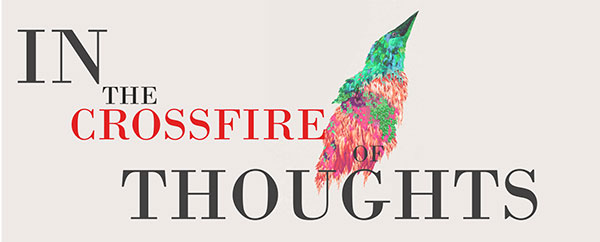
In the Crossfire Thoughts
In his final years, Leo Tolstoy received world-wide acclaim. Even in his last days, Leo regretted over his actions in his younger days and agonized over it. He renounced all worldly possessions, including his claim in his estate, and was intent on starting life anew. Unfortunately, there was great strife in his personal life due to his spiritual beliefs. He was caught in the crossfire of his beliefs and his followers, and his family’s opposition to them. Leo’s wife even disapproved of his disciples regularly visiting him at the estate. His elder sons, Sergey and Ilya remained neutral in the family’s disputes. Leo, Andrey and Michael supported Sonya, their mother. Of his daughters, Marya and Aleksandra both followed his teachings and served him as secretaries.
His wife’s growing resentment and their frequent quarrels took its toll on Leo. He decided to abandon his family and wealth and embark on a pilgrimage. Hence, in October 1910, Leo, along with his youngest daughter Aleksandra, went on a pilgrimage, travelling incognito in the hope of dodging the press.
Aleksandra was to be Leo’s doctor during the trip. Unfortunately, the pilgrimage turned out to be arduous for Leo. The aging novelist fell sick at the station not far from his home. The train depot’s station master in Astapovo welcomed the ailing writer into his home for rest and recuperation. The station master even called his personal doctors and Leo was given morphine and camphor injections. But as fate would have it, at the age of 82, Leo died there itself of pneumonia on 7th November, 1910. Thousands of peasants gathered at his funeral, and though they did not know who Leo was, they just knew that “some nobleman had died”.
Leo Tolstoy was buried in a simple wooden coffin in the Stary Zakez Wood at the family estate, Yasnaya Polyana, in Tula Province. This was the same estate where he was born and had spent much of his childhood years with fond memories. Leo was survived by his wife, Sonya and their ten children. ‘Yasnaya Polyana’, Leo Tolstoy’s family estate is now preserved as a State Memorial and National Preserve. The family home still contains the library of over twenty thousand books in over thirty languages.
Thus was the life of Leo Tolstoy – one of the giants of Russian literature. From a debauched lifestyle in his younger years, he became an acclaimed novelist and rose to become the religious and moral philosopher of the world during his last three decades. There has been a lot of interest in his life and personality over the years. To some people, Leo was the embodiment of nature and pure vitality, and to those who knew him and his works, he was not only a great writer, but a living symbol of man’s eternal search for the meaning of life.
‘Hadji-Murad’, a novella written by him in 1904, was discovered and published after his death. Publisher Vladimir Chertkov, Leo’s closest friend wrote ‘The Last Days of Leo Tolstoy’ in 1911.

The Writer’s Art
“The artist of the future will understand that to compose a fairytale, a little song which will touch, a lullaby or a riddle which will entertain, a jest which will amuse or to draw a sketch such as will delight dozens of generations or millions of children and adults, is incomparably more important and more fruitful than to compose a novel, or a symphony, or paint a picture, of the kind which diverts some members of the wealthy classes for a short time and is then forever forgotten. The religion of this art of the simplest feelings accessible to all is enormous, and it is as yet almost untouched.”
– Leo Tolstoy in ‘What is Art?’
The leading 19th century writers such as Charles Dickens and French philosophers like Jean Jacques Rousseau influenced Leo’s writings. Leo’s teachers introduced these writers to him. Leo however, was a more profound and more radical thinker than Rousseau. Leo Tolstoy believed that the purpose of all true creative art is to teach. The message in his stories is presented with humour. Leo had a gift for describing the unconscious motives of his characters in his writings. He also showed his finesse in showing a person’s character and purpose through the details of his everyday actions.
In his first book ‘Childhood’, Leo’s childhood experience of being educated at home by tutors was woven into a fictionalized story. In ‘Childhood’, the young protagonist is also educated at home. Years later, when Leo planned ‘a perfectly truthful account’ of his life, he was anxious not to repeat himself, so he re-read ‘Childhood, Boyhood, Youth’. In his words, he regretted the book “so ill and insincerely (in a literary sense) is it written. But it could not have been otherwise, in the first place because my intention was to relate not my own story but that of my childhood friends, and this resulted in an incoherent jumble of events from their childhood and my own, and secondly, because at the time of writing it, I was far from being independent in my forms of expression but was strongly under the influence of two writers : Sterne (his Sentimental Journey) and Topffer (La Bibliotheque de mon oncle).”
To Leo, the last two parts – Boyhood and Youth were even more displeasing for they were not only ‘an awkward mixture of fact and fiction’, but were insincere as well. According to Leo, it was their “desire to put forward as good and important what I did not then consider good and important, namely, my democratic turn of mind.”Still, the man and the great writer that Leo was to become, is amply evident in this semi-autobiographical work.
Leo also expressed his moral and philosophical outlook in his works. In January 2007, it was noted that ‘War and Peace’ and ‘Anna Karenina’ still occupy pride of place among Time magazine’s ten greatest novels of all time. ‘Anna Karenina’ occupied the first place and ‘War and Peace’ occupied the third place on the list. Leo’s works of art possessed the humane quality of empathy capable of binding the human conscience at all levels and at every age. The reader experiences life in all its intensity through his great works.

Leo On Celluloid
Some films have also been made on Leo. In 1901, Burton Holmes, American travel lecturer visited Yasnaya Polyana and filmed Leo with his 60-mm camera in conversation with the U. S. Senator and historian Albert J. Beveridge. However, the documentary evidence was later destroyed by Beveridge’s advisers since they thought it would hurt Beveridge’s candidature for U. S. Presidency.
In 1912, ‘Departure of a Grand Old Man’ was made just two years after Leo’s death. In 1984, ‘How Fine, How Fresh the Roses Were’ and ‘Leo Tolstoy’ were directed by Sergei Gerasimov, starring himself as Leo.
‘The Last Station’, a film based on the novel by Jay Parini, about Leo’s final year was made in 2009 by director Michael Hoffman. In the film, Leo Tolstoy’s role was played by Christopher Plummer and that of Sofya (Sonya) by Helen Mirren. Both the actors won Oscar nominations for their performances.

Critical Appreciation
The giant of Russian literature, Leo Tolstoy, has been paid lofty tributes by his contemporaries. Anton Chekhov, who was often a visitor at Leo’s country estate, wrote of him, “When literature possesses a Leo, it is easy and pleasant to be a writer; even when you know you have achieved nothing yourself and are still achieving nothing, this is not as terrible as it might otherwise be, because Leo achieves for everyone. What he does serves to justify all the hopes and aspirations invested in literature.”
Russian novelist, Fyodor Dostoyevsky, regarded Leo as “the greatest of all living novelists”. According to Irish novelist James Joyce, “He is never dull, never stupid, never tired, never pedantic, never theatrical!” After having read a translation of War and Peace, Gustave Flaubert heaped praises on Leo, “What an artist and what a psychologist!”
English writer Virginia Woolf declared Leo to be “the greatest of all novelists.” She further said that his observational powers instilled a kind of fear in readers, who “wish to escape from the gaze which Leo fixes on us.”
According to 19th century British poet and critic, Matthew Arnold, “a novel by Leo is not a work of art but a piece of life.” To quote 20th century Russian author Isaak Babel, “If the world could write by itself, it would write like Leo.” Many critics seem to agree with the view that Leo’s works seem to elude all artifice. Leo had the ability to observe the smallest changes of consciousness and to record the slightest movements of the body. He had the capability to break down a single act of consciousness into a series of infinite small steps, the details would be so exacting.
Next Biography





